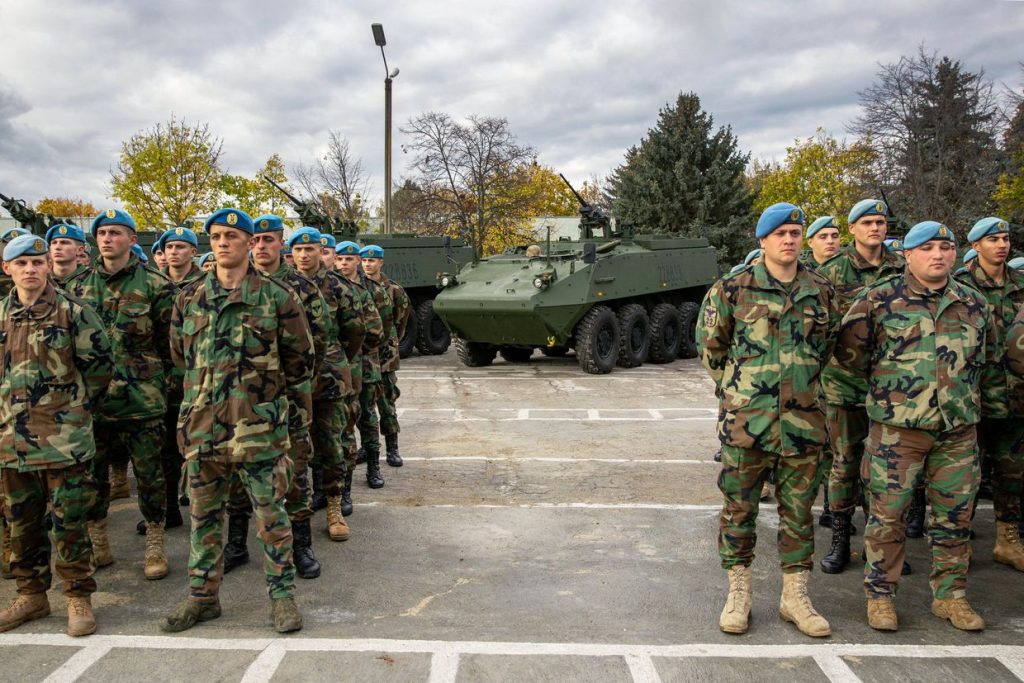The European Union has announced plans to provide lethal military aid to Moldova, a neighbor of Ukraine and an EU candidate country. Tensions between Moscow and Chisinau have been escalating since February 2022, raising concerns that the conflict may spill into Moldova through Transnistria, a territory occupied by Russian troops since the early 1990s. The EU has been supporting Moldova in reforming its military for several years, with the European Peace Facility providing financial support for various military capabilities such as medical services, de-mining, logistics, cyber-defense, drone units, and command and control. This assistance effectively doubled Moldova’s defense budget, with plans to include lethal components in the support package.
In addition to EU support, Moldova has also received bilateral military assistance from countries like Germany and the U.S. since the start of Russia’s invasion of Ukraine. Moldovan President Maia Sandu and French President Emmanuel Macron signed a bilateral defense agreement in March, outlining future military training, intelligence sharing, and increased defense consultation between the two countries. Macron pledged France’s unwavering support for Moldova against the Russian threat. Moldova’s border guards recently discovered fragments of a Russian Shahed-type attack drone near the border with Ukraine, further heightening concerns about potential security threats in the region.
The presence of Russian troops in Transnistria has raised fears in Moldova about the potential for the conflict in Ukraine to spill over into its territory. The EU’s decision to provide lethal military aid to Moldova is seen as a response to the escalating tensions and the need to strengthen Moldova’s defense capabilities. The support from the EU, along with bilateral agreements with countries like France, is aimed at enhancing Moldova’s military preparedness and ability to respond to potential security threats in the region.
The European Peace Facility has been a key source of support for Moldova’s military reforms, providing funding for various defense capabilities such as medical services, de-mining, logistics, cyber-defense, drone units, and command and control. This assistance has played a significant role in strengthening Moldova’s defense capabilities and preparing the country for potential security challenges. The EU’s decision to include lethal components in its support package reflects the evolving security situation in the region and the need for Moldova to be prepared to defend itself against potential threats.
The discovery of fragments of a Russian attack drone near the border with Ukraine has further highlighted the security concerns in the region and the potential for the conflict to spill over into Moldova. The presence of Russian troops in Transnistria and the ongoing tensions between Moscow and Chisinau have created a sense of urgency for Moldova to enhance its defense capabilities and be prepared for any potential security threats. The EU’s support, as well as bilateral agreements with countries like France, is essential in helping Moldova strengthen its defense and be prepared to respond to any challenges that may arise in the region.
Overall, the EU’s decision to provide lethal military aid to Moldova, along with bilateral agreements with key partners, is a significant step in enhancing Moldova’s defense capabilities and preparing the country for potential security challenges in the region. The support from the EU and other countries reflects the growing concerns about the security situation in the region and the need for Moldova to be prepared for any potential threats. By strengthening its military capabilities and increasing cooperation with allies, Moldova is working to safeguard its security and stability in the face of escalating tensions and potential security risks.















